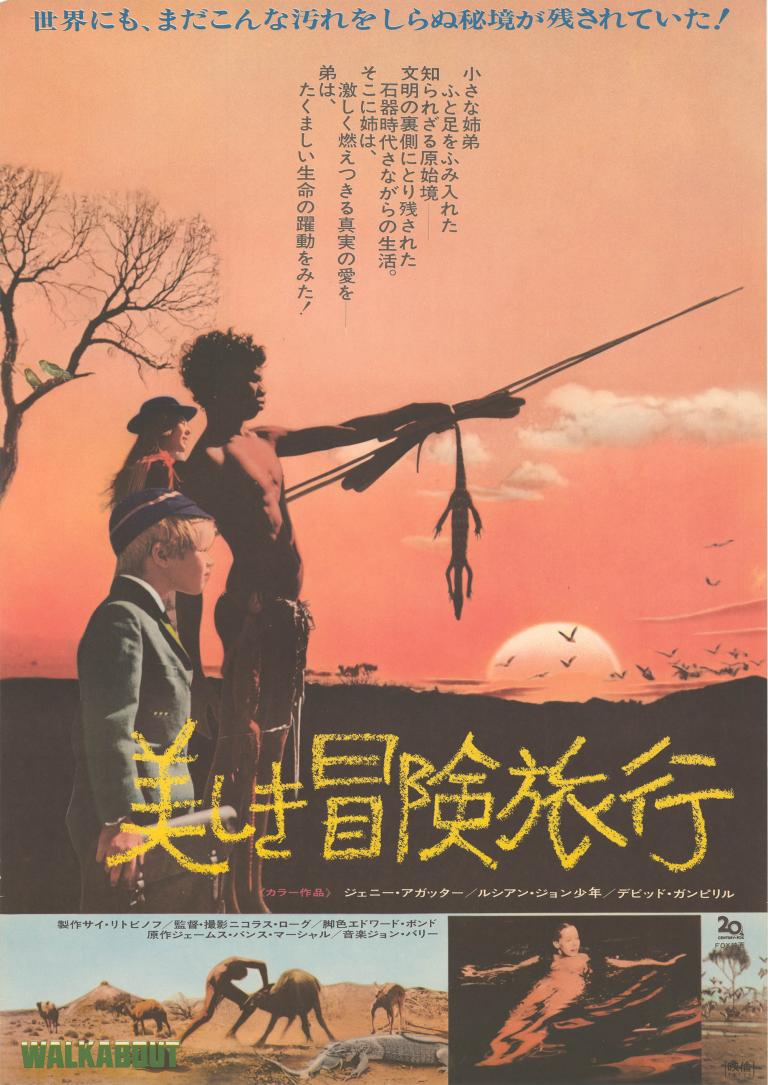
Japanese poster for Walkabout
A poster is a crucial part of a film's marketing and distribution strategy ahead of, and during, its cinema release. A poster has multiple purposes: it hints at what a film is about while also highlighting elements that might draw an audience in, such as famous stars, genre, or what makes it unique. You can see this in the Japanese poster for Walkabout, where the sunset backdrop alongside side quests like skinny dipping and kangaroo wrestling tap into stereotypical views of the Australian Outback as an exotic place with famous wildlife, which would have resonated with overseas audiences. However, these scenes also enrich the story the poster is selling, and the characters are given equal visual weight as they embark on their life-changing ‘Beautiful Adventure Trip’ (the Japanese translation of the title). Walkabout was released in 1971 and is significant as the film that launched the screen career of Yolngu actor David Gulpilil, who was a teenager when director Nicolas Roeg cast him. Gulpilil went on to star in a raft of films including Storm Boy (1976), The Tracker (2002) and Australia (2008).
The National Film and Sound Archive of Australia acknowledges Australia’s Aboriginal and Torres Strait Islander peoples as the Traditional Custodians of the land on which we work and live and gives respect to their Elders both past and present.



